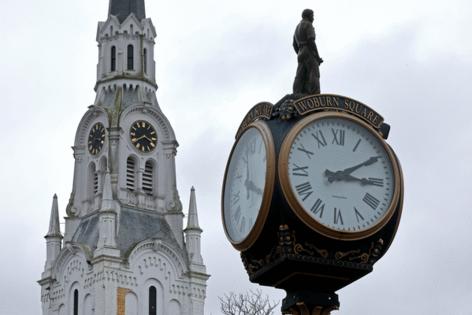Allison Schrager: Make daylight saving time permanent? The US economy says yes
Published in Op Eds
President-elect Donald Trump’s latest promise is to eliminate Daylight Saving Time, which would mean putting the U.S. on Standard Time year-round.
Billionaire DOGE bosses Elon Musk and Vivek Ramaswamy, meanwhile, seem to want to make Daylight Saving Time permanent. Is this just a miscommunication? Or is the incoming administration as divided on this issue as the rest of America?
Regardless, we all must take a stand. Here is mine: Daylight Saving Time is superior to Standard Time, and it should be adopted year-round.
The purpose of time-keeping is to facilitate economic coordination, and DST better suits our modern economy. If the goal were simply to maximize sleep and physical well-being, we’d all be on our own solar time — with the sun directly overhead at noon. But that would be chaos. If the goal were simply to maximize economic coordination, we’d have just one (or maybe two) time zones. But that would be especially hard on people living near the borders.
America’s current system is already a compromise between our corporal and economic needs. Until the General Time Convention of 1883, which established time zones, the U.S. had hundreds of time zones, with each city keeping its own time. The new arrangement brought order and helped budding industries like the telegraph and the railroad coordinate time across geography.
But America’s time-keeping took a few steps backward — I speak strictly metaphorically — in the 20th century, when states started requiring people to change their clocks twice a year in a misguided effort to save energy. There has also been political meddling for less high-minded reasons. Meanwhile, two states don’t observe DST at all.
On a global level, countries change time on different days, which causes weeks of confusion and lost economic output when it comes to international travel and commerce. There is also something imperial about time-changing, since it is developed countries that tend to change their clocks, putting them further out of sync with developing countries.
Finally, there is the evidence that changing clocks, either forward or back, is bad for our health and our productivity.
But ending this practice raises the question of which time to adopt. America actually did adopt permanent DST during the energy crisis of 1974 — and it was unpopular in part because people didn’t like sending their kids to school in the dark. The experiment, which was supposed to last two years, was canceled after 10 months.
Things have changed a lot since then. There has been a significant migration to the South in the last half century, meaning there are fewer people who would have to deal with the dark mornings and more businesses that would benefit from lighter evenings.(1) It’s not surprising that it is a senator from Florida, Marco Rubio, who has led a years-long crusade to adopt year-round DST.
True, children in the North still would have to go to school in the dark on year-round DST. But unlike the feral children of the 1970s, kids today are more engaged in after-school activities. A lot of them already come home in the dark, to little outcry. At any rate, almost all of today’s schoolchildren are equipped with a flashlight — it’s on their phones.
For their part, the American Society of Sleep Medicine (located in the far northern state of Illinois) would prefer Standard Time because it is closer to solar time. But unlike the 1970s, when it comes to sleep schedules, more people are better able to keep their own time. Working from home is more common, as are more flexible work (and nap?) schedules.
A couple decades ago, a research paper suggested that one of the main ways Americans kept time was through TV schedules. Nowadays people stream on their TVs or phones. My point is not that we all need to get off Netflix; it’s that, while our sleep may not be as sensitive as we once thought to what the clock says, our economic activity is. And our economy would be better off with year-round Daylight Saving Time.
_____
(1) It is also worth noting that some northern states (such as Maine) have already passed resolutions to go on permanent DST.
This column does not necessarily reflect the opinion of the editorial board or Bloomberg LP and its owners.
Allison Schrager is a Bloomberg Opinion columnist covering economics. A senior fellow at the Manhattan Institute, she is author of “An Economist Walks Into a Brothel: And Other Unexpected Places to Understand Risk.”
_____
©2024 Bloomberg L.P. Visit bloomberg.com/opinion. Distributed by Tribune Content Agency, LLC.




























































Comments